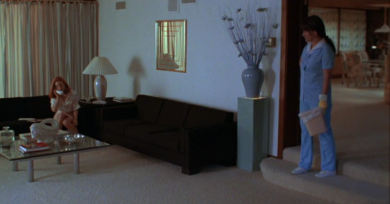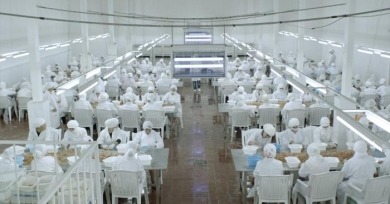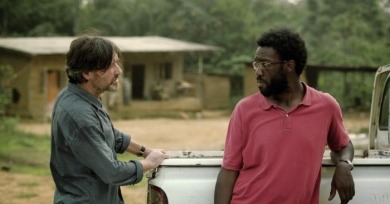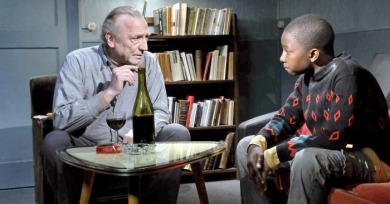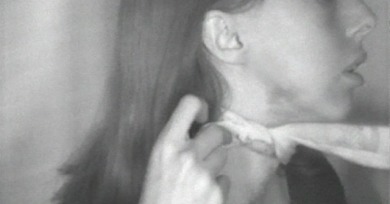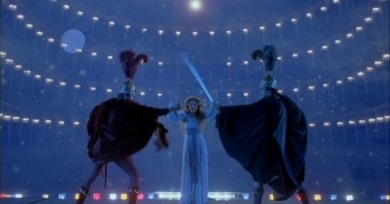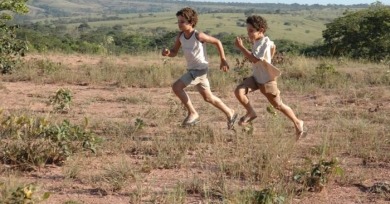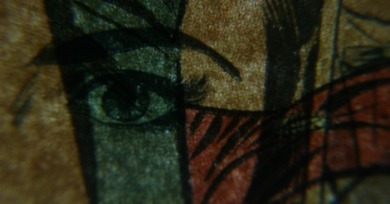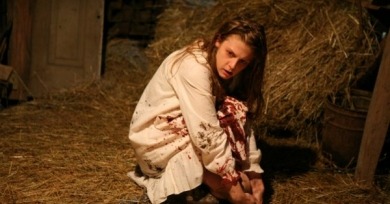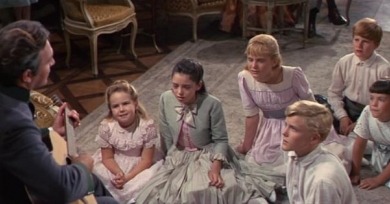Genevieve Yue
The couch doesn’t match her house, which is to say it doesn’t match her: pale, delicate, and self-effacing to the point that she practically disappears into the drapery.
Ai seems exceedingly good at telling the kinds of stories he wants people to know, and at times it’s difficult to tell whether he or Klayman is directing the documentary.
Though expansive, Tocha aims not for ethnographic chronicle as the film’s three-plus hours, organized into sixteen sections, might suggest, but poetic evocation.
Simon Curtis’s My Week with Marilyn, the latest film to tackle the subject, sticks mostly to biopic terrain, though initially, at least, it addresses the disjunction between Monroe’s public face and her stormy private life.
For a Cronenberg film, there’s very little violence, save a few vigorous spankings, but it would be a mistake to call A Dangerous Method bloodless.
Michael Brandt’s The Double, Leila Kilani’s On the Edge, Ahmed el-Maânouni’s Oh the Days!, Leonard Retel Helmrich’s Position Among the Stars
Inferno Towering The, Lingo of the Lost, Empire of Evil, The Death of the Gorilla, Señora con flores, Between Gold, Gazette, Sack Barrow, The Unstable Object, Studies for the Decay of the West, Jhana and the Rats of James Olds or 31 days/31 videos
Like Claire Denis’s recent White Material, Ulrich Köhler’s Sleeping Sickness, which earned a Silver Bear for directing at the 2011 Berlin Film Festival, is something of a postcolonial Heart of Darkness, a complex and at times allegorical portrait of Europeans living in Africa.
The frozen time of this “unrealistic film,” as Kaurismäki calls it, is punctuated by more than a few glimpses of the contemporary world.
I prefer to think that Hughes knew exactly what he was doing when he made Curly Sue, his parting letter to an industry that both nurtured and exploited him. Beneath the film’s thick layer of sentimental goo lies a deeper cynicism about the nature of wealth and happiness in an otherwise uncaring world.
Going the Distance, Love and Other Drugs, No Strings Attached, and the latest, Will Gluck’s Friends with Benefits, are all drenched with nineties irony, ample sexting, swearing, and preening narcissism passed off as sardonic self-awareness.
Cynthia Maughan, Paul McCarthy and William Wegman, Georges Perec and Bernard Queysanne, Glauber Rocha
In 1944, toward the end of his life, D. W. Griffith lamented, “What’s missing from the movies nowadays is the beauty of the moving wind in the trees.” By then, the sound film had eclipsed the cinema the director had shaped in the early decades of the twentieth century.
Stylistically, it may seem strange that Coppola’s muted depiction of jet-set ennui is the indie pick, while La Luna, a flamboyant feature even by Bertolucci standards, was released by a major studio.
Before Im Sang-soo’s version premiered at Cannes last year, The Housemaid had already been remade four times by Kim himself, each version further twisting an already deformed tale of a ferocious femme fatale who enters a middle-class home and tears apart its nuclear family.
Though she made her feature filmmaking debut with Mutum (which closed Cannes’ Directors’ Fortnight program in 2007 and toured as part of 2009’s Global Lens initiative), Sandra Kogut has been an active documentarian for the past two decades.
New Year Sun, The Agonal Phase, Drifter, Recámara, Hearts Are Trump Again, White Lite, Meatdaze, razor’s edge, Corneille-Brecht ou “Rome, l’unique object de mon ressentiment!”, Dissonant, Shadow Cuts, A Thousand Julys, In the Absence of Light, Darkness Prevails, Rite of Spring
This isn’t a real documentary, of course, and it’s not even the TV show Ghost Hunters, which suspends judgment either in favor of or against the otherworldy. It’s a horror film, and by speaking those words, Marcus effectively seals his fate.
It’s a minor detail, but if you watch The Sound of Music closely enough, you’ll notice that Captain Von Trapp (Christopher Plummer) keeps a whistle on him practically all the time.
While Hollywood has always been invested in catching war from the front lines, the cinematic output born of this particular moment has far exceeded that of any previous combat situation.
